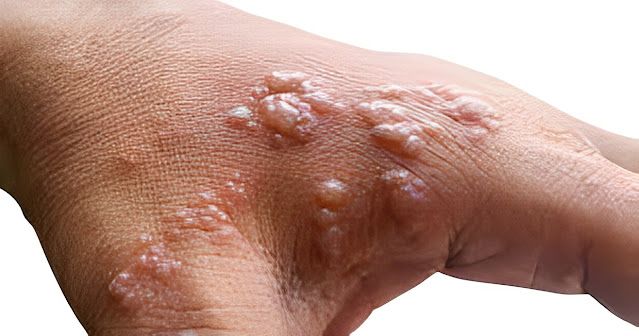
Interesting Facts About Monkeypox - This Will Surprise You
Introduction:
Monkeypox is a rare disease that is caused by the monkeypox virus. It was first discovered in 1958 in monkeys in the Democratic Republic of Congo. The virus can cause a disease that is similar to smallpox in humans, but it is much less severe. In this blog post, we will explore some interesting facts about monkeypox.

Monkeypox can be transmitted from animals to humans:
The monkeypox virus is primarily transmitted from animals to humans. The virus is found in a variety of animals, including rodents, primates, and other mammals. The most common way for humans to contract monkeypox is through contact with infected animals, their blood, or bodily fluids. People can also contract monkeypox through contact with materials contaminated with the virus, such as bedding or clothing.
Monkeypox has similar symptoms to smallpox:
The symptoms of monkeypox are similar to those of smallpox. They include fever, headache, muscle aches, backache, swollen lymph nodes, chills, and exhaustion. A rash then appears, often beginning on the face then spreading to other parts of the body. The rash changes and goes through different stages before finally forming a scab, which then falls off. In general, monkeypox is a milder disease than smallpox, and the death rate is much lower.
Monkeypox is not very contagious:
While monkeypox can be transmitted from animals to humans, it is not very contagious from person to person. The virus is primarily transmitted through direct contact with the infected person's bodily fluids or respiratory droplets. The virus can also be spread through contact with objects that have been contaminated with the virus. However, the risk of transmission from person to person is much lower than with other diseases like smallpox or measles.
Monkeypox has been found in several African countries:
Monkeypox is primarily found in central and west African countries. The disease has been reported in several African countries, including Cameroon, Central African Republic, Democratic Republic of the Congo, Liberia, Nigeria, Republic of the Congo, and Sierra Leone. There have also been cases reported in the United States, the United Kingdom, and Israel, although these cases were all travel-related.
There is no specific treatment for monkeypox:
Currently, there is no specific treatment for monkeypox. Treatment is supportive and aimed at relieving symptoms. This may include medication to reduce fever and pain, as well as fluids to prevent dehydration. In severe cases, hospitalization may be required. However, most cases of monkeypox are mild and resolve on their own.
A monkeypox vaccine is available:
A vaccine for monkeypox is available, but it is not widely used. The vaccine is similar to the smallpox vaccine and is effective in preventing monkeypox. The vaccine is only recommended for people who are at high risk of contracting monkeypox, such as healthcare workers or people who live in areas where monkeypox is common.
Monkeypox outbreaks are rare:
Monkeypox outbreaks are rare and usually occur in remote areas of central and west Africa. The disease is not easily transmitted from person to person, which helps to limit its spread. However, there have been several outbreaks in recent years, including a large outbreak in Nigeria in 2017.
Conclusion:
Monkeypox is a rare disease that is primarily found in central and west Africa. While the disease is similar to smallpox in humans, it is much less severe. Monkeypox is primarily transmitted from animals to humans and is not very contagious from person to person. There is no specific treatment for monkeypox, but a vaccine is available for people at high risk of contracting the disease. Monkeypox outbreaks are rare but can occur in remote areas of central and west Africa.
Appreciate the creator